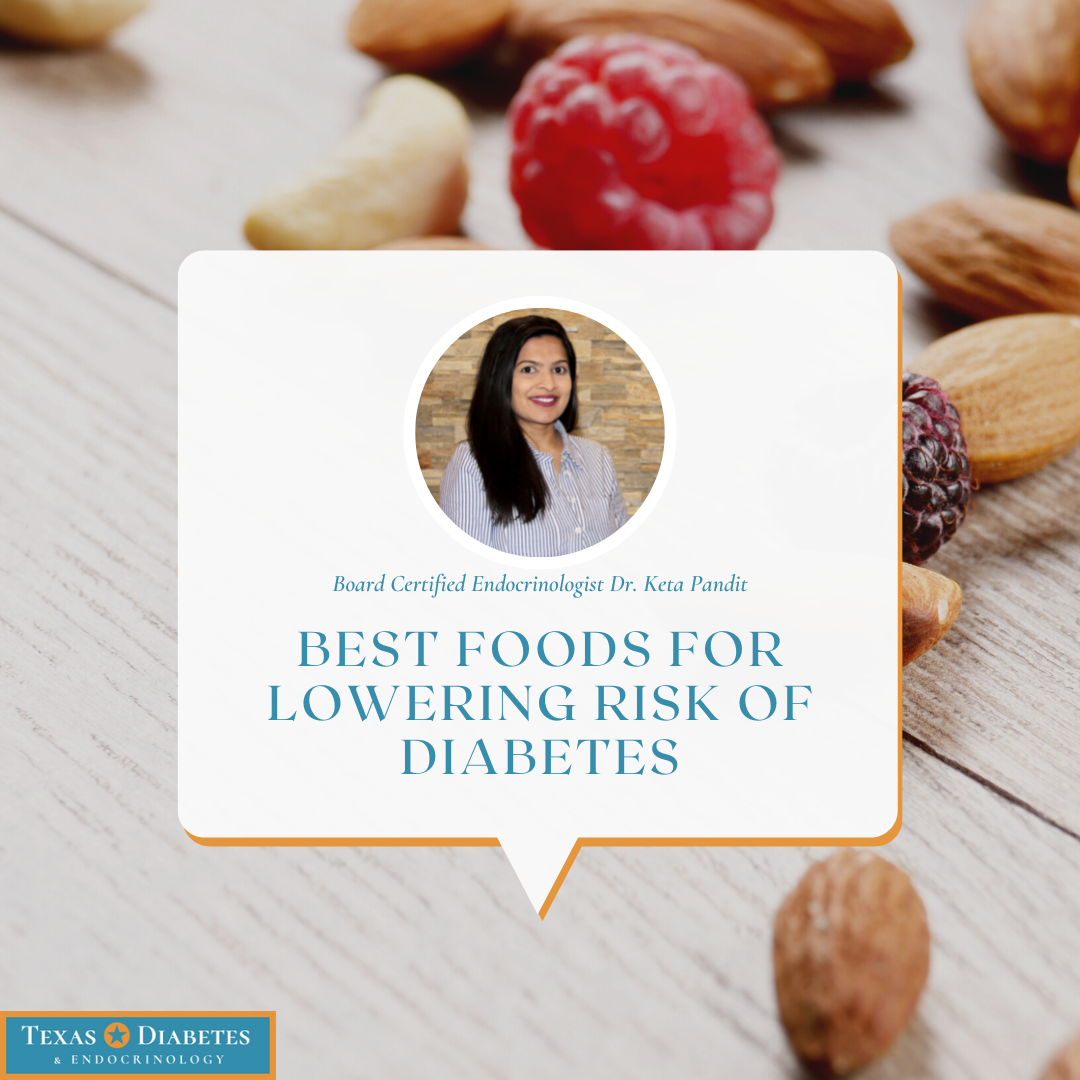
Your nutrition has a big role when it comes to your health. For example, did you know that there are some foods that can help you lower your risk of diabetes?
Board certified endocrinologist Dr. Keta Pandit recently discussed important information everyone should know when it comes to your nutrition and lowering your diabetes risk. Here’s what she had to say:
What are the best foods for keeping diabetes risk down?
Diet is one of the most important parts of maintaining your blood sugar levels, which helps to lower your diabetes risk. There are plenty of foods, like those with added sugars and carbs, that can contribute to fluctuating blood sugar levels, but fortunately, there are others that can optimize your overall health including:
- Beans – While they do contain carbohydrates, keeping them to the serving size can provide protein and fiber.
- Dark green leafy vegetables (spinach, collards, kale) – These are packed with Vitamins A, C, E, K and they’re powerhouse foods that are low in calories and carbohydrates. They can be consumed in salads, soups or stews.
- Fruits – Stick to a serving size. Eat berries in the summer and citrus fruits in the winter. They are packed with vitamin C, fiber, and antioxidants, and they can satisfy one’s sweet tooth.
- Nuts and nut butter – They have healthy fats, fiber and good omega – 3 fatty acids.
- Whole grains – These are rich in vitamins and minerals such as iron, folate, magnesium, B vitamins. Examples include: whole oats, quinoa, whole grain barley, and farro.
- Plain Greek Yogurt
- Avocado
- Seafood, like salmon
What foods are unexpectedly high in sugar?
According to the American Heart Association (AHA), the maximum amount of added sugars you should eat in a day are 150 calories per day for men (37.5 g or 9 teaspoons) and 100 calories per day (25 g or 6 teaspoons) for women. Our standard American diet is, unfortunately, filled with foods with hidden sugars. Some of the worst culprits that so many of my patients are unaware of include bread, salad dressings, BBQ sauce, pasta sauces, and condiments such as ketchup. Other common items in our diet also include granola bars, sweetened yogurt, instant oatmeal, breakfast cereals, energy drinks, and packaged fruit. In addition, all beverages with added sugars, such as juice, regular soda, regular sports or energy drinks, or coffee with added sugar should be avoided. Sweets such as ice cream, candy, and baked goods should certainly not become a part of a daily diet, as each serving contains high amounts of added sugar.
Regular consumption of foods with high amounts of added sugar intake, over time, can cause huge blood sugar spikes, which can lead to prediabetes and progress to diabetes.
Don’t forget to follow us on Facebook and Instagram and check back with us each month as we provide you helpful wellness and health information.




